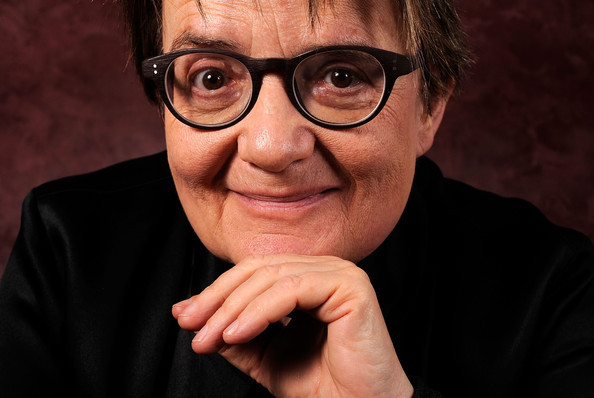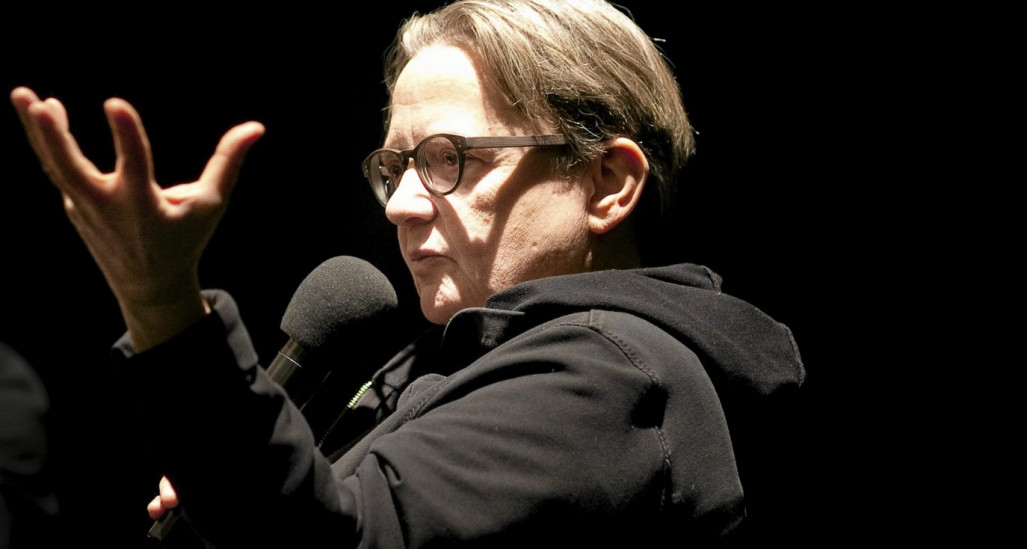The FIPRESCI 94 Platinum Award will be handed over to Agnieszka Holland at the Sofia International Film Festival in March, 2020
“My life is not about being successful,” says Agnieszka Holland. “I have the urge to communicate with people, to speak ˗ through my films ˗ about what seems important to me at a given moment.”
She is a bold and consistent artist, with unique intelligence, speaking in her own voice. Unlike many artists, she is capable of nourishing her rebellion inside, defending her ideas without choosing the easy paths.
Her position in the international film industry is strong; she makes films in Poland, France, the United Kingdom, the United States and the Czech Republic. She directs television series. Starting from 2014, she served as the chairperson of the Council of the European Film Academy for two terms.
Her life is divided between the US, France and Poland. Yet she says: “My roots are unchanged. I am a woman, a mother, a European and a Pole. All of this defines me. This is how it is: no matter where you live, you carry your own world inside you.”
The inner world of Agnieszka Holland was shaped in the 1950s and 1960s. First of all, there was the family home. Her mother: a journalist, author of books and guides, for example: How to Be a Loved Grandma. Her father: a pre-war communist, later a journalist hunted down by the system. He died in mysterious circumstances in 1961 during a secret police search in his apartment.
During childhood, Agnieszka Holland was ill a lot; she spent a lot of her time in hospitals: she learnt how it was to be different and alone. She started to devour books. When she was 16, she was a true savant. Later, she studied directing in Prague where she experienced the Prague Spring and the Soviet intervention. “I was observing a country that relished freedom for a brief moment but was quickly silenced again,” she recollects. This was an important experience in her life. Holland was arrested during a manifestation and imprisoned. She lived there first love affairs and got married.
After returning to Poland, Holland made her début with Evening at Abdon’s: a poetic impression based on Jarosław Iwaszkiewicz’s short story. A year later she made Sunday Children, a socially sharp film filled with bitterness about illegal adoption, followed by full-length Screen Tests filmed together with Paweł Kędzierski and Jerzy Domaradzki.
The turn of the 1970s and the 1980s was an important period. At that time, filmmakers were the avant-garde. They noticed before the sociologists and politicians the social stances and anxieties which led to the solidarity revolution in 1980. Young directors around Andrzej Wajda became the co-authors of the Polish “cinema of moral anxiety.” Holland created the flagship films of the movement: Provincial Actors and Fever. In 1981, she completed a television film entitled Lonely Woman ˗ a poignant story about alienation and lack of hope.
However, the time of freedom did not last long. The martial law was introduced when Holland was in Sweden. She did not return to the country, but the price for emigration was high. Separation with the family and with her husband; it was only after many problems that she managed to bring her daughter to Paris. These first years in the West were also hard for her as an artist. In France, she lost her sensitivity to nuances, the language, the appearance and the taste of the daily life. Maybe that is the reason why she turned to history in her next films. Her very first film made in the West was Angry Harvest a story about a Jewish girl hiding in a rural house during the German occupation. The film was successful and received an Oscar nomination.
Later, she made To Kill a Priest (about Rev. Popiełuszko, murdered by the Polish Secret Service captain) and Europe. Europe. She received another Oscar nomination for the screenplay for the latter film. The story about the life of a Jewish boy who got to the elitist Nazi school became a blockbuster at the American market.
In France, Holland made Olivier, Olivier and she also made her début on the great American market by filming the Secret Garden for Warner Bros. The film made 32 million dollars in America and Hollywood welcomed the Polish film director with arms wide open. She could have made more blockbusters and acclimatise there. Yet instead of making another hit with a grand American star, she decided to focus on a difficult picture about Rimbaud entitled Total Eclipse. Later she made Washington Square based on Henry James’ novel and subsequently the Third Miracle where she spoke about the urge for faith in the times of rationality. In a smart way, without offering ready-made solutions, but only asking questions. Holland decided to make films for the wide audience: accessible, yet intellectually challenging. This was also the case with Copying Beethoven ˗ the story of the old Beethoven, who was losing his hearing, and his young pupil. An insightful film about a man with a great talent, about the torment and euphoria of creation, about the taste of success and failure, about being ahead of one’s time and also about the price that other people pay for consorting with a genius.
Holland keeps returning to America. She directs episodes of series, often the outstanding ones, like The Wire, Treme, The Killing or The House of Cards. She also directed series in Europe, including the important ones: in the Czech Republic the Burning Bush about the self-incineration of Jan Palach and in Poland the political Ekipa where she laid bare the mechanisms of politics so that her story became almost prophetic. The artist divides her time between Brittany, Paris and Warsaw. She is the citizen of the world. Every one of her films becomes important.
In the Oscar-nominated In Darkness Holland reached for the authentic story of Leopold Socha, who during WWII was hiding a large group of Jews in Lviv, risking his own life. In the Spoor made on the basis of a novel written by the Polish Nobel prize laureate, Olga Tokarczuk, in the form of a stylised, ecological thriller, she examined the painful and the controversial issues of modernity: she showed the divided society, lacking tolerance and governed by the law of the stronger, with no place for the weak ones. Three years later, in Mr. Jones Holland reminds us about journalist Garreth Jones who described the Famine in Ukraine in the 1930s. She recounts the lies of the propaganda, the courage of the one man who wanted to tell the truth and the value of true journalism.
During the festival in Berlin, Holland is going to show her newest film, Charlatan. This is an authentic story of a Czech healer: a panorama of the 20th century starting from WWI until the communist times, a diagnosis of diseases suffered by Europe: regimes and nationalist movements that are born in it.
These themes are close to Holland’s heart. She is defending the unsteady democracy in Europe, in America and especially in Poland and does not shy from strong and wise political appearances. She has also been talking about the necessity of taking an honest look at oneself for a long time. “You cannot build anything on hate,” she repeats. “I do not know what amount of sand would be necessary to fill the ditches that are dividing people today. But you have to try.” She believes that this is one of the tasks of art.
Barbara Hollender
© FIPRESCI 2020





